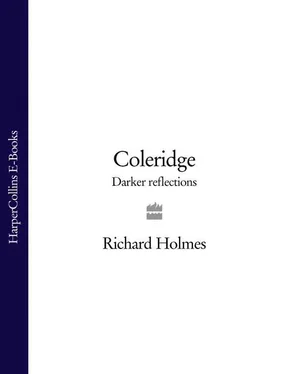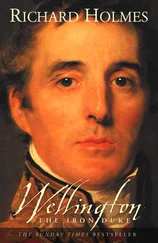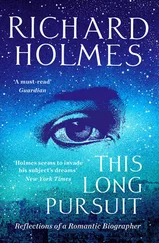The violence of his reaction can also be explained by the role he had sometimes imagined for John, as his own alter ego in Asra’s heart, capable of bringing her one day a solid, companionable love, which he could not match. If this seems a strange, almost masochistic displacement, it was genuine and indeed typical of Coleridge. “O blessed Sara, you whom in my imagination at one time I so often connected with him, by an effort of agonizing Virtue, willing it with cold sweat-drops on my Brow!” 130At some level, Coleridge felt it should have been him who had died in John’s place.
The news of John Wordsworth’s death also brought to a head the question of Coleridge’s return to England. William confidently expected that it would be immediate: “he has engagements with the Governor: if these do not prevent him I am sure he will return the first minute he can after hearing the news. I am as sure of this as if I heard him say so.” 131But he could not hear the silent night-voice of Coleridge’s Notebooks, which was more than ever uncertain. “Lord Nelson is pursuing the French Fleet & the Convoy is to be deferred. I felt glad – how can I endure that it should depart without me? Yet if I go, wither am I to go? Merciful Providence! what a cloud is spread before me: a cloud is my only guide by day and by night: I have no pillar of Fire…” 132
It was the same “procrastination” that had greeted the news of the death of his child, little Berkeley, long ago in Germany. But now it was his whole future life that seemed at issue. Part of him longed to go back to his children, to Asra and the Wordsworths; part of him would do anything to avoid a reunion with Mrs Coleridge; and part of him simply luxuriated in the easy, expansive living of the Mediterranean, the orange trees coming into blossom (“a prodigality of beauty”), the talkative dinners with Ball and the navy officers, the guilty opium sessions at night, the drowsy sexual dreams, the endless reading and philosophizing. Above all, perhaps, his suspended exile in Malta allowed him to fantasize about Asra: “O Sara! gladly if my miserable Destiny would relax, gladly would I think of thee and me, as of two Birds of passage, reciprocally resting on each other in order to support the long flight, the awful Journey.” 133
Throughout April his opium-taking increased, and he struggled with boils and fever. Sometimes his thoughts turned to suicide – “Die my Soul, die! – Suicide – rather than this, the worst state of Degradation!–” 134; and sometimes he even beat himself, “hands, breast or forehead, in the paroxysms of Self-reproof”. 135Eventually the convoy left without him, and he resumed work as Public Secretary more busily than ever. The note of pure pleasure quickly returned, as on the afternoon he walked up to join Sir Alexander for a weekend at San Antonio in the gardens. “Having had showers (23 April) I smelt the orange blossom long before I reached St Antonio. When I entered it was overpowering: the Trees were indeed oversnowed with Blossoms, and the ground snowed with the fallen leaves: the Bees on them, & the golden ripe fruit on the inner branches glowing.” 136
He wrote to Stuart that his work occupied him “from 8 o’clock in the morning to 5 in the afternoon, having besides the most anxious duty of writing public Letters and Memorials”. He was bitterly disappointed at having missed the spring convoy, and all sea-voyages were now perilous; but he was planning to return overland by Naples, Trieste and Germany, to outflank the French armies now pressing down on Austria and northern Italy. “I have resolved, let the struggle cost what it may, & even at the forfeiture of Sir A. Ball’s Good will, to return home at the latter end of May.” He wrote similarly to Wordsworth: “O dear Friends! Death has come amongst us!…I mean to return in the latter end of May at all events, and have wept like a child that the convoy is off without me, but my office of Public Secretary makes it impossible.” 137
But in fact this resolution was not to be carried out for a further year. Perhaps the only hint of his divided feelings came in his evident attachment to Ball and the satisfaction in working for him. “Sir A. B. behaves to me with really personal fondness, and with almost fatherly attention – I am one of his Family, whenever my Health permits me to leave my own House.” 138
From now on, Coleridge’s letters home become few and erratic, and none has survived until the end of July. Mr Chapman did not return, and the increasing gravity of the strategic situation in the Mediterranean put great pressures on the Malta administration, with problems of supply, unrest among the local population (including demonstrations against the Jews, which Coleridge issued proclamations to suppress), 139counterfeit passports, and preparations for a huge naval expedition under General Sir James Craig. Nelson was now hastening back from the West Indies, looking for a major confrontation with the French and Spanish fleets under Villeneuve.
Coleridge was continually riding around the island, being bitten by dogs; dealing with local disputes, transport and medical problems; and working hard and late at the Treasury on bandi and official letters. On one occasion, working in the “Saloon built for Archives & Library, & now used as the Garrison Ballroom”, and probably well-dosed with laudanum, he fell into a doze and awoke to see the ghostly figure of another secretary, Mr Dennison, sitting in a chair opposite him, although the man had retired to bed ten minutes previously.
He wrote a long note on this interesting apparition, “that of a person seen thro thin smoke, distinct indeed but yet a sort of distinct Shape & Colour – with a diminished Sense of Substantiality – like a Face in a clear Stream.” He remarked that he had often had similar experiences, the product of nerves and exhaustion, “and therefore resolved to write down the Particulars whenever any new instance should occur: as a weapon against Superstition, and an explanation of Ghosts – Banquo in Macbeth – the very same Thing.” These notes eventually reappeared in 1809 in a brilliant essay on Luther’s vision of the devil. He felt no fear, and recalled: “I once told a Lady, the reason why I did not believe in the existence of Ghosts etc. was that I had seen too many of them myself.” 140
Despite the tense fortress atmosphere, and the pressure of work, Coleridge spent many weekends up at San Antonio, where he was given his own room high up above the gardens, and was able to walk on the palace roof with a telescope. He copied and translated Italian madrigals and sonnets by Marino; and made extensive botanical notes, and weird medical cocktails using aconite, angostura and “German Leopard’s Bane”. 141
His sexual dreams continued, sometimes on an epic scale and gloriously free from guilt. One, in June, was “a long Dream of my Return, Welcome, etc. full of Joy & Love”, which was full of curious “images and imagined actions” free from desire but implying “awakened Appetite”. In this dream which clearly featured Asra in some form of tropical paradise, Coleridge found himself in a primitive state of society “like that of those great Priests of Nature who formed the Indian worship in its purity, when all things, strictly of Nature, were reverenced according to their importance, undebauched by associations of Shame and Impudence”. 142
It was probably now, in the summer gardens of San Antonio, that he began his unfinished poem to Asra, “The Blossoming of the Solitary Date-Tree”. It was suggested by a fact “mentioned by Linnaeus, of a date tree in a nobleman’s garden which year after year had put forth a full show of blossoms, but never produced fruit, till a branch from another date-tree had been conveyed from a distance of some hundred leagues”. It opens with the image of huge frosty mountain peaks “beneath the blaze of a tropical Sun”, an image of unreflected or unrequited love. “What no-one with us shares, scarce seems our own.” In one stanza it catches his mood of renewed hopefulness and the richness of the Mediterranean landscape offering him an “overflow” of gifts; and in the next shadows this with a sense of exile, of living in a “lonesome tent”, far away from the voice that can inspire him.
Читать дальше












